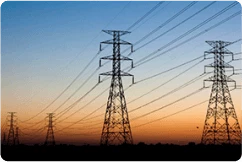100% Secure Payments
Tender Details
- Country: Zimbabwe
- Summary: Consultant to Develop a Sustainability Framework for Solar Installations in Health Facilities
- ZWT Ref No: 30786707
- Deadline: 24 Feb 2019
- Competition: ICB
- Financier: United Nations Secretariat
- Purchaser Ownership: -
- Tender Value: Refer Document
- Notice Type: Tender
- Document Ref. No.:
- Purchaser's Detail :
- Description :
- Tenders are invited for Consultant to Develop a Sustainability Framework for Solar Installations in Health Facilities. UNICEF works in some of the world’s toughest places, to reach the world’s most disadvantaged children. To save their lives. To defend their rights. To help them fulfill their potential. Across 190 countries and territories, we work for every child, everywhere, every day, to build a better world for everyone. And we never give up. 1. Background The Ministry of Health's National Health Survey performance report indicates that 67% of the population live in rural areas. This population depends on rural health facilities for the provision of primary health care, including maternal, new-born and child health services. These services should be available during the day as well as at night especially for deliveries and emergency situations, and yet for fault of a reliable power source these essential services are often disrupted. Up to 32.5% of health facilities lack electricity in Zimbabwe, compromising health service provision with unforgivable consequences for children. Women and children\'s health are the most affected by the lack of sustainable energy sources, and yet they are not often in a position to demand more out of health services or contribute to potential solutions. The neonatal mortality rate stands at 29 per 1,000 live births and contributes to a third of under-five mortality. The major causes of neonatal deaths in Zimbabwe are risk factors related to pregnancy and delivery often associated with poor quality of care. Health staff are obligated to commit time on domestic water fetching chores when they could be dedicating more time to patients. In addition, lack of a sustainable water source further undermines infection prevention measures and deters implementation of the 72-hour postpartum stay for lack of maintained bathing and toilet facilities. Staffing quarters without basic amenities such as running water and electricity negatively impacts health worker retention in rural areas. The Sustainable Energy for Health Facilities and Surrounding Communities (SE4HF) project seeks to develop a sustainability model to ensure long-term operations of solar powered sustainable energy solutions for health facilities, including a community-based approach to empower women and youth in the surrounding communities as well at the same time involving the private sector as the main supplier of panels, training and services. One of the main components of this programme will be to develop a scalable and replicable framework for long-term maintenance and operations, ensuring sustainability of the solar power installations. This will complement already existing initiatives on sustainable energy in the health sector in Zimbabwe and potentially boost the solar panel and services market in Zimbabwe. 2. Purpose of the Assignment This assignment focuses on developing a Sustainability Framework (SF) including market and community-based approaches for maintenance and disposal of solar equipment in Health Facilities. Solar panels can last for up to 20-25 years while batteries usually last for only 5 or maximum 10 years. The maintenance of these installations as well as ensuring that batteries and other parts are checked and exchanged and well disposed of in environmentally sustainable manner continues to be the Achilles heel of solar panel installations and service packages in many cases thus far. Through operational research and extensive consultation in liaison with UNDP and UNICEF, the consultant will develop a best practice sustainability framework for upscaling and influencing the development of maintenance model for solar powered systems in health facilities. This work will require consulting with communities to raise awareness and provide small-scale entrepreneurship and livelihood possibilities, as well as the private contractor and Health Centre Committees. As part of the sustainability framework, waste disposal plan is also to be developed in order to ensure environmentally friendly safe disposal of damaged or unusable equipment. A wide range of stakeholders will be consulted, and various scenarios accounted for, including whether the panels are installed as part of HDF or not. The coordination with UNDP will ensure that funds are utilized in the most efficient way possible and that the framework developed as all-encompassing and as qualitative as possible. The framework will cover issues of installations, service package, trainings, community engagement, private sector involvement, financing and ownership as well as disposal of waste such as damaged, non-functional panels. The process of creating a sense of ownership with Health Centre Committees, communities and other relevant stakeholders will be found and elaborated on. The consultant will produce a report i.e. the Sustainability Framework inclusive of a Market Based approach, recommendations and examples of best practices and financing mechanisms for the exchange of spare parts and maintenance costs as well as disposal of damaged or non-functional equipment. 3. Scope of Work: The consultant will: § Lead/facilitate 2-3 Stakeholder meetings with Ministry of Health and Child Care, Ministry of Public Works, Ministry of Environment and Energy and other key stakeholder on possible models for sustainability of solar panel installations in Health Facilities (can be same as Task Force meetings, see 4.) § Identify stakeholders and liaise with those who have been approved relevant by UNICEF § Facilitate, dialogue/meetings with private sector, communities and Government Ministries as part of stakeholder consultation process to develop a Sustainability Framework (inclusive of Market and community-based approaches for maintenance and disposal of solar equipment in Health Facilities (up to 10 consultation meetings). These will be based on the list of stakeholders to consult produced by the consultant (must include Task force meetings led by MoHCC (can be the same as 1. above) § Research/desk study on best practices on solar panel installations in health facilities in the region and elsewhere, including different models for private sector engagement, financing, sustainability community engagement. § Produce suggestions for how to include and implement community ownership creation, awareness raising and social mobilization measures for HCCs and surrounding communities § Develop and present a sustainability framework inclusive of a market-based approach analysis and a set of specific and a broad spectrum of recommendations for SE4HF and also a disposal plan for the solar equipment as well as specific ones for SE4HF implementation § Develop a monitoring, evaluation and research plan for follow up of the implementation of the Sustainability Framework recommendations in the health facilities targeted in SE4HF. 4. Major Tasks, Deliverable, Timelines and Payment Schedule No. Task Deliverable Date of Deliverable Payment Schedule 1. Identify stakeholders and liaise with those who have been approved relevant by UNICEF List of recommended stakeholders to consult Minutes from meetings with the respective consultants from both UNICEF (energy assessment) and UNDP (feasibility study for regional solar sustainability) 15th March 2019 25% 2. Conduct a research/desk study on best practices on solar panel installations in health facilities in the region and elsewhere, including different models for private sector engagement, financing, sustainability and community engagement Summary on best practices on sustainability models for solar power installations from the region and elsewhere (to be included in Sustainability Framework) 1st April 2019 3. Facilitate and/or attend up to 10 dialogue meetings with private sector, communities and other relevant stakeholders  Summary of recommendations made in stakeholder consultations (to be included in Sustainability Framework) Trip reports (where applicable) 30th April 2019 25% 4. Produce recommendations for community engagement and awareness raising, focusing on women and youth, on sustainable energy solutions such as solar, where the powering of public institutions is in the center of the interventions  Recommendations document (to be included in Sustainability Framework). Recommendations can be based on the consultations (see above) and/or best practices, consultant\'s own documented experience etc. 30th April 2019 5. Develop a monitoring, evaluation and research plan for follow up of the implementation of the Sustainability Framework recommendations in the health facilities targeted in SE4HF Sustainability framework implementation follow up plan developed (as part of Sustainability Framework) 30th April 2019 6. A Sustainability Framework including market and community-based approach analysis and a broad spectrum of recommendations as well as specific ones for SE4HF implementation Sustainability Framework document to include § A Market Based Approach analysis and recommendations § Information from UNDP, UNICEF and the Solar Consultants, relevant Ministries, Health Center Committees and the Private Sector (based on consultations with these) § Summary on best practices on sustainability models for solar power installations from the region and elsewhere (see above) § Recommendations for various funding mechanisms to ensure replacement of batteries and spare parts, maintenance costs and repairs beyond the warranty period for health facilities on and off the grid including both the private sector and livelihood opportunities for women and youth in the targeted communities § Recommendations for community engagement and awareness raising, focusing on women and youth, on solar as a sustainable energy solut
- Documents :
Purchaser : UNITED NATIONS CHILDREN'S FUND
6 Fairbridge Avenue
Belgravia
Harare
Tel: 703.881 / 731.840 / 703.94 / 799.232
Fax: 791.163
Email :harare@unicef.org
URL :http://www.unicef.org/
If you are registered member, kindly login to view full details of this tender notice:
CLICK HERE TO LOGIN




